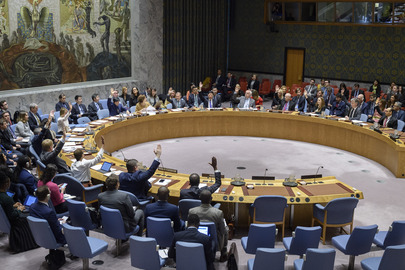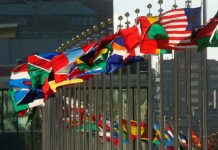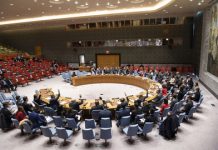The effects of the devastating COVID-19 pandemic are still being felt. Around seven million people died, health systems were overwhelmed, and the global economy was practically driven to a standstill.
The global turmoil prompted a stunned international community to pursue an agreement aimed at preventing such a catastrophic event from happening again – and ensuring the world is far better prepared in the future.
The landmark decision was made at the World Health Assembly, the annual meeting of the World Health Organization (WHO).
Although the formal adoption was on Tuesday, the WHO’s Member States overwhelmingly approved the agrement on Monday (124 votes in favour, 0 objections, 11 abstentions).
This meant that, rather than a nail-biting vote with last-minute surprises (ahead of the conference, Tedros Adhanom Ghebreyesus, WHO Director-General, only felt able to express “cautious optimism”), the adoption by consensus had a celebratory feel.
“The agreement is a victory for public health, science and multilateral action,” declared Tedros. “It will ensure we, collectively, can better protect the world from future pandemic threats.
“It is also a recognition by the international community that our citizens, societies and economies must not be left vulnerable to again suffer losses like those endured during COVID-19.”
WHO Member States approved the first-ever Pandemic Agreement on 19 May 2025
‘Once-in-a-lifetime opportunity’
The pandemic laid bare gross inequities between and within countries, when it came to diagnostics, treatments, and vaccines, and a core aim of the agreement is to plug gaps and treat any future pandemics in a fairer and more efficient way.
“Now that the Agreement has been brought to life, we must all act with the same urgency to implement its critical elements, including systems to ensure equitable access to life-saving pandemic-related health products,” announced Dr. Teodoro Herbosa, Secretary of the Philippines Department of Health, and President of this year’s World Health Assembly, who presided over the Agreement’s adoption.
“As COVID was a once-in-a-lifetime emergency, the WHO Pandemic Agreement offers a once-in-a-lifetime opportunity to build on lessons learned from that crisis and ensure people worldwide are better protected if a future pandemic emerges.”
The issue of national sovereignty has been raised several times during the process of negotiating the accord, a reflection of false online claims that WHO is somehow attempting to wrest control away from individual countries.
The accord is at pains to point out that this is not the case, stating that nothing contained within it gives WHO any authority to change or interfere with national laws, or force nations to take measures such as banning travellers, impose vaccinations or implement lockdowns.
WHO Member States approved the first-ever Pandemic Agreement on 19 May 2025
Next steps
The adoption has been hailed as a groundbreaking step, but this is just the beginning of the process.
The next step is putting the agreement into practice, by launching a launching a process to draft and negotiate a Pathogen Access and Benefit Sharing system (PABS) through an Intergovernmental Working Group.
The result of this process will be considered at next year’s World Health Assembly.
Once the Assembly adopts the PABS annex, the agreement will then be open for signature and consideration of ratification, including by national legislative bodies. After 60 ratifications, it will enter into force.
Other provisions include a new financial mechanism for pandemic prevention, preparedness and response, and the creation of a Global Supply Chain and Logistics Network to “enhance, facilitate, and work to remove barriers and ensure equitable, timely, rapid, safe, and affordable access to pandemic-related health products for countries in need during public health emergencies of international concern, including pandemic emergencies, and for prevention of such emergencies.”
Source of original article: United Nations (news.un.org). Photo credit: UN. The content of this article does not necessarily reflect the views or opinion of Global Diaspora News (www.globaldiasporanews.com).
To submit your press release: (https://www.globaldiasporanews.com/pr).
To advertise on Global Diaspora News: (www.globaldiasporanews.com/ads).
Sign up to Global Diaspora News newsletter (https://www.globaldiasporanews.com/newsletter/) to start receiving updates and opportunities directly in your email inbox for free.































